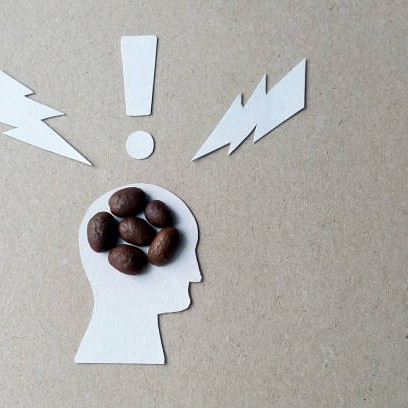5 things you should know about caffeine
By4 Minute Read

4 Minute Read
Caffeine is the most widely consumed psychoactive substance in the world; often used to boost mood and elevate both mental and physical performance.
If you’re thinking of using caffeine to your advantage, here are five things to keep in mind…


Caffeine's 'half life' is very important!
The ‘half life’ of caffeine is around 4-6 hours, which means that for most people half of the caffeine will still be in your system 4-6 hours after consumption.
So, despite not feeling its ‘buzz’ a few hours later, half of it will still be present, which can negatively impact your sleep if you consume caffeine after midday.
If you want to fall asleep quickly, and achieve high quality (deep) sleep, try switching to decaf after 12pm - or earlier if you’re highly sensitive to caffeine.
Caffeine ‘trojan horses’
Coffee accounts for over 50% of the world’s caffeine consumption but is also present in other foods and drinks such as teas, dark chocolate and cola.
Here are a few foods and drinks to be aware of if you’re looking to moderate your caffeine intake (especially if it’s nearing bed time)…
Coke regular or diet (330ml): ~45mg
Dark chocolate (45g): ~45mg
Milk chocolate (45g): ~20mg
Coffee brewed (300ml): 100-300mg
Matcha (300ml): 60-120mg
Decaf coffee (300ml): ~5-50mg
Energy drinks (250-500ml): 80-350mg
Tea brewed (300ml): 40-140mg
*Numbers will vary depending on brand and serving size.
Coffee is unlikely to dehydrate you…
Coffee contains caffeine and caffeine is a diuretic, which means that it may cause you to urinate more frequently and this may affect your hydration status.
This has led people, including ourselves and many of our clients, to wonder whether coffee has hydrating or dehydrating effects…
The answer is ‘it depends’ but in most cases coffee is unlikely to dehydrate you.
The science shows that drinking coffee in moderation (<400mg per day) is unlikely to dehydrate you as although it may cause you to urinate a bit more, it’s likely that you won’t lose as much fluid as you originally drank.
*400mg of caffeine is the equivalent of around 3-4 cups of brewed coffee.
For caffeine to have a mild dehydrating effect, most people would need to be consuming in excess of 500mg of caffeine a day - something we don’t recommend to anybody (study here).
Tip: If you really want to play it safe with your hydration, try pairing your coffee with a glass of water. This is an easy habit to get into and is one that many of our high performing clients have adopted and reaped the benefits from.
Caffeine use - insights from high performers
When it comes to the high performers we support, some use it, others don’t - but very few rely on it.
Despite an abundance of research demonstrating the mental and physical benefits of caffeine, over our years of practice it’s been interesting to learn that some of our high performing clients make good use of caffeine, while others have absolutely no interest in using it whatsoever - despite performing at the top of their game day in, day out.
I suppose this reverts back to what we often preach on our coaching programmes… what works for one person likely won’t work for someone else, and each person has their own unique preferences. This makes especially good sense when it comes to caffeine seeing as it really isn’t the be all and end all of ‘high performance’. In fact, caffeine is only one of many available ‘tools’ in the ‘high performance toolbox’.
Closing thoughts...
If you’re looking to benefit from caffeine, here are the main considerations (albeit not exclusive to!)…
1. The amount - usually determined by your goals and level of caffeine tolerance.
2. The type - keep in mind that different forms contain different amounts.
3. The timing - for several reasons, but mainly so it doesn’t impact your sleep.
The Edge HPL is not responsible for any specific health or allergy needs that require supervision nor any adverse reactions you may have to the advice we provide - whether you have followed them as written or have modified them to suit your dietary requirements.
Any nutritional advice and information provided by The Edge HPL is based on our own experiences, research and knowledge. The information provided is not to be used in place of proper medical advice. The Edge HPL and its employees and representatives are not medical professionals, do not hold any type of medical licenses or certifications and do not practice medicine. If customers have any medical questions regarding any advice or information provided by The Edge HPL, they should consult their physician, or another healthcare professional. Please also refer to our Standard Business Terms and Conditions, which can be found on our website.